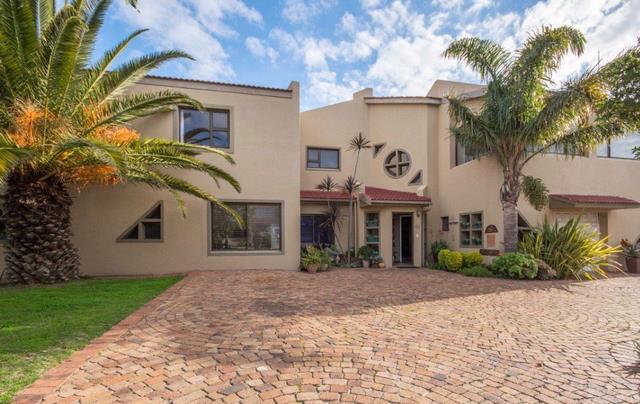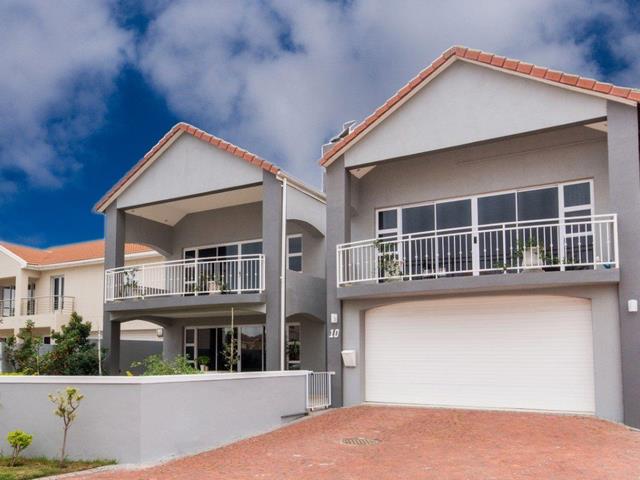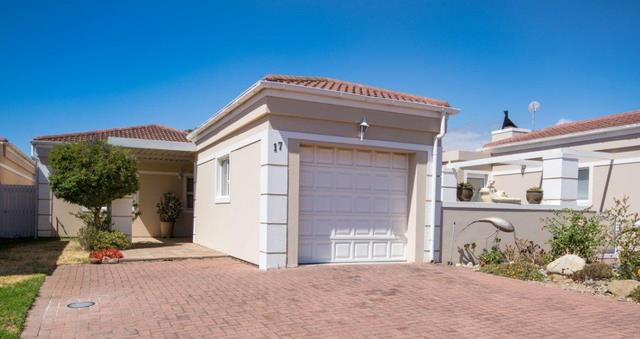It’s no secret that tough economic times can play havoc on the value of ‘luxury’ coastal and holiday properties, and many seaside towns across South Africa have felt the pinch as the economy contracts. Some regions like the Helderberg Basin, however, have remained remarkably resilient in the face of political and economic challenges.

Wouter Joubert, co-franchisee of the Rawson Property Group’s Helderberg franchise, sheds some light on why this is, and what it could mean for the future of the area’s seafront.
“I think one of the most interesting and defining characteristics of the Helderberg’s coastal properties is their ability to bounce back from challenging times incredibly quickly,” says Joubert.
“A great example of this is their recovery after the recession in 2008.”

Using Beach Road in Strand as an example, Joubert reveals that only 36 property transactions were recorded during the recession year of 2008. The total value of those transactions was just under R62.5 million, and the highest price achieved was R5.481 million. By 2016, however, those figures had more than quadrupled, with 171 transactions totalling just under R300 million recorded for the year, and a record sales price of R10.6 million achieved in 2014.
A similar rebound could be seen in the upmarket beachfront estates of Greenways Golf Estate (also in Strand) and Harbour Island (in Gordon’s Bay).
“In Greenways, only nine property sales went through in 2009 with a total spend of a little over R9.5 million,” says Joubert.
“During 2016, on the other hand, 50 transfers were recorded, totalling a monumental R97.775 million. Harbour Island was equally sluggish in 2009, with only 12 transfers totalling R20.32 million, by 2016 those number had risen to 55 transfers and an impressive R110.484 million total spend for the year.”

While economic and political factors played an undeniable role in this remarkable recovery, Joubert says he believes the Helderberg’s coastal properties owe their unusual resilience to far more than just national investor confidence.
“A massive interest rate drop like we had between 2008 and 2012 (15.5% to 8.5%) would have helped to trigger recovery in almost any market, but it doesn’t account for how much better Helderberg coastal properties did in comparison to similar areas in other parts of the country. To understand this, you need to dig a little deeper into what makes these parts of the Helderberg so desirable for locals, as well as buyers and investors from upcountry and overseas.”
According to Joubert, the work of the local-run municipality has been a major asset in this regard.
“We’re very lucky to have a local government that is investing in ongoing maintenance and upgrades of our infrastructure,” he says.

“On Beach Road alone, there has been a R180 million refurbishment of the seawall and Strand Pavilion Precinct. There’s also a R103 million upgrade to Broadway Boulevard in the works, which will make the whole area more accessible and less traffic-prone. The result is that a lot more holidaymakers are choosing Strand as a destination, and people from less effective or engaged municipalities are seeing the area as a prime place to permanently relocate.”
It’s not just infrastructure that makes the Helderberg’s coastal region so desirable, the value-for-money lifestyle - particularly in estates like Greenways and Harbour Island plays a huge role in the area’s success as well, says Joubert.
“There are very few places in the Western Cape where you can get 24/7 security, a par 3 golf course (in the case of Greenways), mooring facilities (in the case of Harbour Island), clubhouses, swimming pools, tennis courts, beach access and views for as little as R1.5 million for an apartment or R2.5 million for a house,” he says.
“For locals, it’s a bargain. For foreigners with dollars or pounds, it’s an absolute steal.”

Joubert says he believes it’s this far-reaching appeal and unique desirability that will once again carry the Helderberg’s coastal properties safely through the political, economic and climatic challenges ahead.
“South Africa is not in an ideal situation at the moment. Politically, we’re quite unstable, the water crisis seems to be spreading inland, and there could be an interest rate hike towards the end of the year. Ordinarily, this would spell trouble for luxury coastal properties, but here in the Helderberg Basin, property values remain strong,” says Joubert.
“We may not be getting the same exponential growth that we saw two years back, but that’s a natural and necessary part of the ebb and flow of the market. From a long-term perspective, there is no doubt that properties on the Helderberg coast will remain some of the best investments a person can make.








